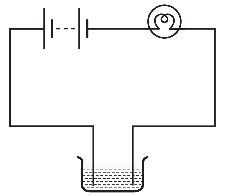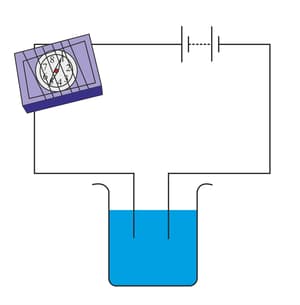Do Liquids Conduct Electricity?
Do Liquids Conduct Electricity?: Overview
This topic describes the conductivity of electricity by liquids. Water may contain several salts dissolved in it. They are good conductors of electricity. Most liquids that conduct electricity are solutions of acids, bases and salt.
Important Questions on Do Liquids Conduct Electricity?
A tester is used to check the conduction of electricity through two liquids, labelled A and B. It is found that the bulb of the tester glows brightly for liquid A while it glows very dimly for liquid B. You would conclude that
In case of a fire, before the firemen use the water hoses, they shut off the main electrical supply for the area. Explain why they do this.
Paheli had heard that rainwater is as good as distilled water. So, she collected some rainwater in a clean glass tumbler and tested it using a tester. To her surprise, she found that the compass needle showed deflection. What could be the reasons?
Is it safe for the electrician to carry out electrical repairs outdoors during heavy downpour? Explain.
A child staying in a coastal region tests the drinking water and also the seawater with his tester. He finds that the compass needle deflects more in the case of seawater. Can you explain the reason?
Does pure water conduct electricity? If not, what can we do to make it conducting?
The bulb does not glow in the setup shown in figure. List the possible reasons. Explain your answer. 
Name three liquids, which when tested in the manner shown in figure, may cause the magnetic needle to deflect.

When the free ends of a tester are dipped into a solution, the magnetic needle shows deflection. Can you explain the reason?
